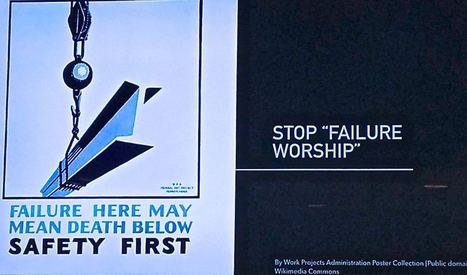It’s probably no surprise that most people who have attained some sort of success experience failure at some point in their lives. It’s a painful but often necessary path to growth, and if you take its lessons and pointers seriously, you might just find that it allows you to operate at a level that you didn’t think was possible.
Of course, it’s up to you to act on those lessons, but you don’t need to look too far to see the possible payoffs. As Michael Grothaus previously reported for Fast Company, many businesses we know today wouldn’t have existed if it wasn’t for failure. We wouldn’t have KFC had Colonel Sanders stopped trying after failing 1,000 times to perfect his fried chicken recipe. The Disney Company might not have existed if Walt Disney hadn’t been fired from a newspaper in Missouri “for not being creative enough.” The iPhone might not have existed if Steve Jobs wasn’t forced out of Apple in 1985.
But as we discuss with InternQueen.com CEO and founder Lauren Berger on this week’s podcast episode of Secrets of the Most Productive People, bouncing back from failure isn’t always a tidy process. You often need to allow yourself to process the unpleasant feelings that come with failure, before you can rationally assess what you can do better next time, or as Berger told us, “Figure out how to turn the no’s into a yes.”
Research and publish the best content.
Get Started for FREE
Sign up with Facebook Sign up with X
I don't have a Facebook or a X account
Already have an account: Login
Professional learning in a glance (or two)!
Curated by
John Evans
 Your new post is loading... Your new post is loading...
 Your new post is loading... Your new post is loading...
|
|













